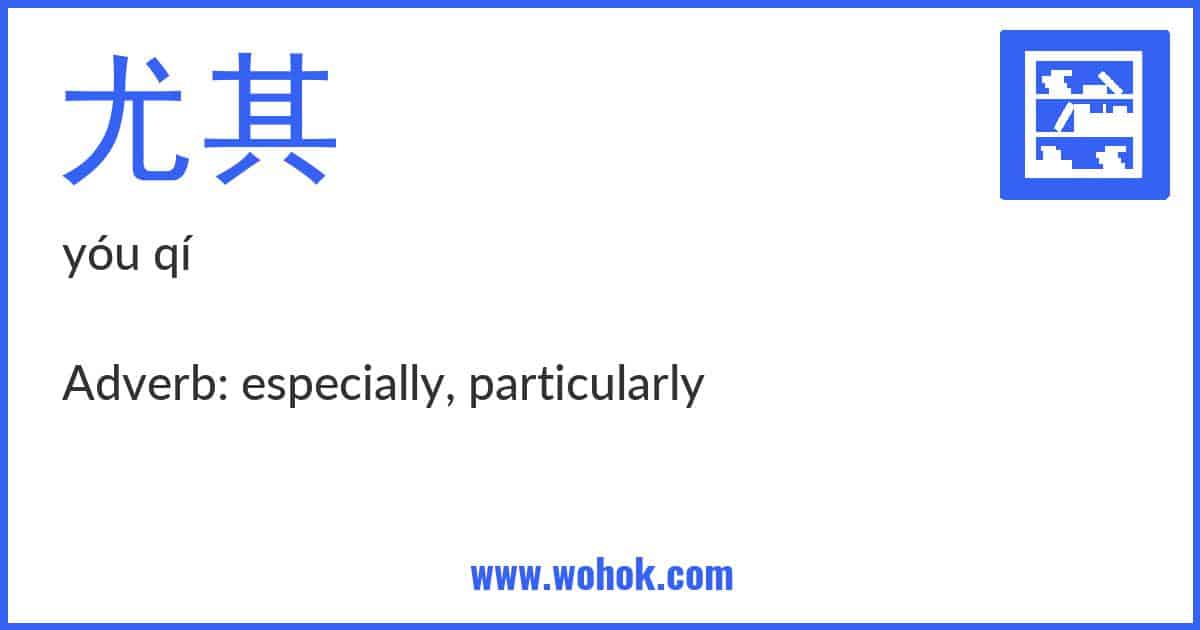The Chinese word 尤其 means “especially” or “particularly”. It is often used to emphasize a specific point or aspect of something. For example, you might say “我尤其喜欢吃巧克力” which means “I especially like to eat chocolate”. In this sentence, “尤其” emphasizes the speaker’s strong preference for chocolate.
Translation
Adverb: especially, particularly
Pronunciation
Example Sentences
| Chinese | Pinyin | Engish |
|---|---|---|
| 这个地方的风景尤其美丽 | zhège dìfang de fēngjǐng yóuqí měilì | The scenery of this place is particularly beautiful |
| 尤其是在夏天,要多喝水 | yóuqí shì zài xiàtiān, yào duō hē shuǐ | Especially in summer, you should drink more water |
| 这个问题尤其棘手,需要我们共同努力解决 | zhège wèntí yóuqí jíshǒu, xūyào wǒmen gòngtóng nǔlì jiějué | This problem is particularly tricky and requires our joint effort to solve |
| 这家餐厅的菜品尤其丰富,你可以尝试一下 | zhè jiā cāntīng de càipǐn yóuqí fēngfù, nǐ kěyǐ chángshì yīxià | The dishes in this restaurant are particularly diverse, you should give them a try |
| 这个城市的气候尤其宜人,非常适合居住 | zhège chéngshì de qìhòu yóuqí yírén, fēicháng shìhé jūzhù | The climate of this city is particularly pleasant and very suitable for living |
| 这个学科尤其具有挑战性,需要你付出更多的努力 | zhège xuékē yóuqí jùyǒu tiǎozhàn xìng, xūyào nǐ fùchū gèng duō de nǔlì | This subject is particularly challenging and requires you to put in more effort |
HSK
尤其 is part of HSK Level 4 in HSK 2.0. In the newer HSK 3.0 it is part of HSK Level 5.
Learning Card


